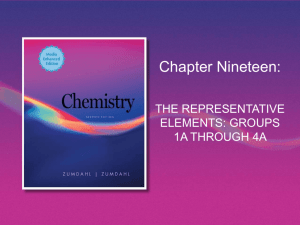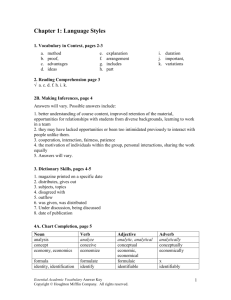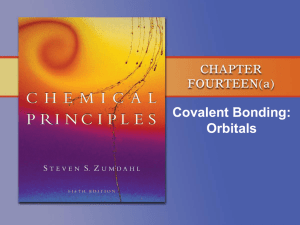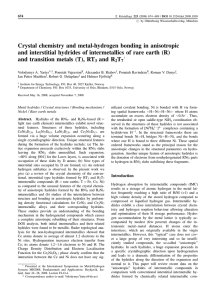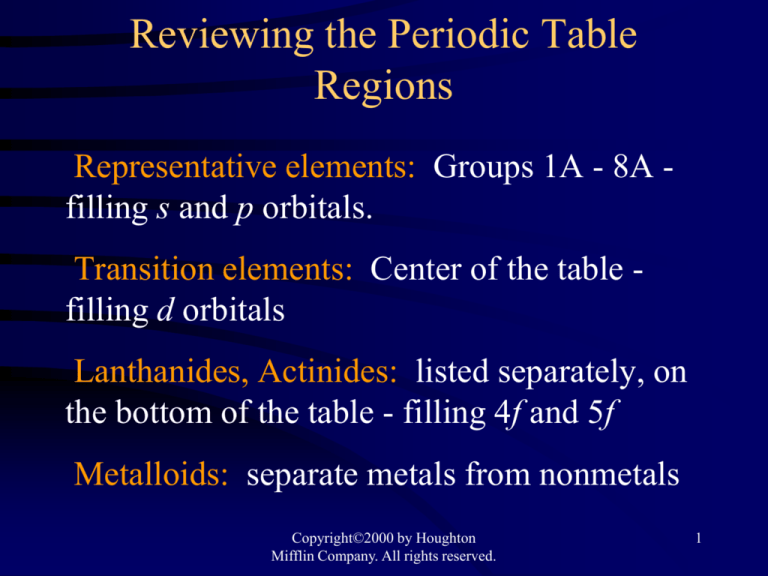
Reviewing the Periodic Table
Regions
Representative elements: Groups 1A - 8A filling s and p orbitals.
Transition elements: Center of the table filling d orbitals
Lanthanides, Actinides: listed separately, on
the bottom of the table - filling 4f and 5f
Metalloids: separate metals from nonmetals
Copyright©2000 by Houghton
Mifflin Company. All rights reserved.
1
Metallurgy
. . . the process of obtaining a metal from its ore.
This always involves reduction of the ions to
the elemental metal (oxidation state = 0).
WO3 (s) 3H2 ( g)
heat
W(l ) 3H2O( g)
Copyright©2000 by Houghton
Mifflin Company. All rights reserved.
2
Group 1A Oxides
In the presence of ample oxygen,
4Li + O2 2Li2O
2Na + O2 Na2O2
K + O2 KO2
Rb + O2 RbO2
Cs + O2 CsO2
Copyright©2000 by Houghton
Mifflin Company. All rights reserved.
3
Hydrides
. . . are binary compounds containing hydrogen.
ionic hydrides: hydrogen + the most active
metals (eg; LiH, CaH2)
covalent hydrides: hydrogen + other nonmetals
(eg; H2O, CH4, NH3)
metallic (interstitial) hydrides: transition metal
crystals treated with H2 gas.
Copyright©2000 by Houghton
Mifflin Company. All rights reserved.
4
Ion Exchange
Ca2+ and Mg2+ are often removed during ion
exchange, releasing Na+ into solution.
Ion exchange resin: large molecules that have
many ionic sites.
Copyright©2000 by Houghton
Mifflin Company. All rights reserved.
5
Inert Pair Effect
The tendency for the heavier elements of
Groups 3A and 4A to exhibit lower oxidation
states as well as their expected oxidation states.
Group 3A +1 and +3 oxidation states
Group 4A +2 and +4 oxidation states
Copyright©2000 by Houghton
Mifflin Company. All rights reserved.
6

